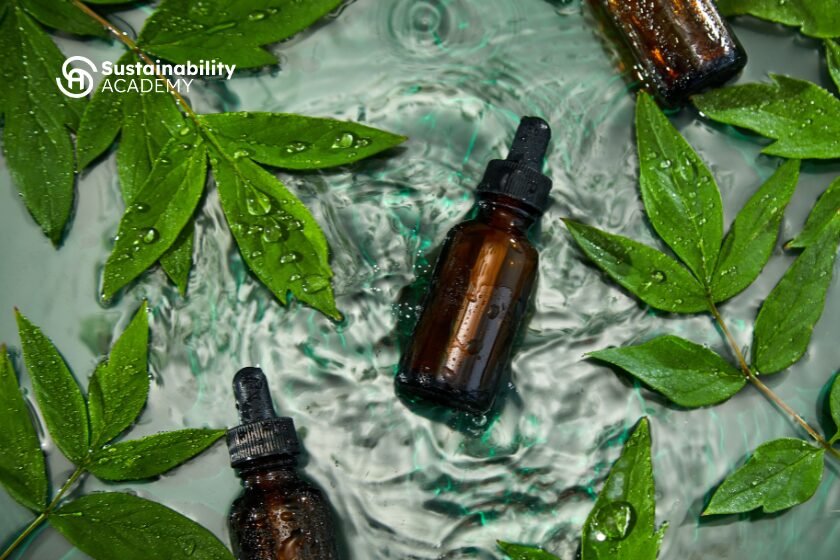The cosmetics industry is at a critical juncture as sustainability becomes a top priority for both consumers and regulators. One of the biggest challenges the industry faces today is greenwashing, where companies make exaggerated or misleading claims about the environmental benefits of their products. As the European Union (EU) steps up its efforts to regulate such practices, with new laws like the Green Claims Directive, businesses must be ready to adapt. But will these new regulations truly stop greenwashing in cosmetics?
What is Greenwashing in Cosmetics?
Greenwashing refers to the deceptive practice where companies falsely claim their products are environmentally friendly. In the cosmetics industry, this often means promoting products as “natural,” “organic,” or “eco-friendly” without any real evidence to back those claims. This practice misleads consumers who are increasingly concerned about the environmental impact of the products they buy.
With sustainability becoming a major trend, many cosmetics brands have rushed to market their products as “green.” However, without proper transparency or proof, these claims often fall into the category of greenwashing, eroding consumer trust and damaging the brand’s reputation.
The EU Green Claims Directive: Putting an End to Greenwashing?
To tackle greenwashing, the EU has introduced the Green Claims Directive, part of the broader European Green Deal, which aims to make the continent climate-neutral by 2050. The directive specifically targets businesses that make environmental claims about their products. Under the new rules, companies will be required to:
- Back up all environmental claims with solid evidence that can be verified.
- Avoid using vague terms such as “eco-friendly” or “natural” without clear and transparent justification.
- Disclose full details of sustainability practices across the entire product lifecycle, from sourcing ingredients to packaging.
According to Cosmetics Europe, this regulation is being welcomed by many in the industry, as it sets a clear standard for what constitutes a legitimate green claim. Brands that have already embraced sustainability will find it easier to comply, but those relying on marketing hype without real environmental commitment may face penalties.
How the Cosmetics Industry is Evolving
The cosmetics industry has been shifting towards sustainability for years, driven largely by consumer demand for products that align with their values. As noted in a ScienceDirect article, eco-conscious cosmetics are no longer a niche market—they have become a key driver of growth for brands. This is especially true as millennials and Gen Z consumers look for products that reflect their environmental concerns.
However, this shift has also encouraged some brands to engage in greenwashing, taking advantage of consumer demand without implementing real sustainable practices. The EU Green Claims Directive is expected to curb this behavior, forcing companies to either fully commit to sustainability or face legal and financial repercussions.
A report from Ecomundo suggests that this regulation will have a significant impact on the industry, not only increasing transparency but also encouraging innovation. Brands will have to find ways to truly reduce their environmental footprint, whether through sustainable sourcing, greener manufacturing processes, or eco-friendly packaging.
What Impact Will These Regulations Have?
The Green Claims Directive is likely to reshape the cosmetics industry in several ways:
- Increased accountability: Brands will need to provide verifiable evidence for any environmental claims, making it harder to mislead consumers.
- Consumer empowerment: With clearer information, consumers will be able to make more informed decisions about the products they buy, opting for those that genuinely align with their values.
- Brand differentiation: Companies that commit to real sustainability practices will stand out, while those engaged in greenwashing may struggle to maintain consumer trust.
- Innovation: As companies seek to comply with regulations, we can expect to see increased innovation in product formulation, packaging, and supply chain management to meet sustainability standards.
So is Greenwashing in Cosmetics Ending with New EU Rules? According to Freyr Solutions, brands that fail to adapt to these regulations may face penalties, reputational damage, or even legal action. The directive is part of a broader move toward a greener European economy, and companies that embrace these changes early on will likely benefit in the long term.
Get Ahead with Sustainability Academy
As the cosmetics industry adapts to these new regulations, professionals will need to stay informed and equipped to manage these changes. The Sustainability Academy offers Certified Courses, designed to help businesses and individuals navigate the complexities of the EU Green Claims Directive and beyond.
- https://sustainability-academy.org/product/online-certificate-on-carbon-reduction-strategy/
- https://sustainability-academy.org/product/diploma-on-sustainable-supply-chain-management/
- https://sustainability-academy.org/product/online-certificate-on-green-sustainable-marketing/
These courses provide:
- A comprehensive understanding of greenwashing and its impact on the cosmetics industry.
- Practical strategies for complying with the EU Green Claims Directive.
- Tools for ensuring transparent and authentic sustainability claims.
- Insights into future trends in sustainable cosmetics.
Whether you’re a brand manager, product developer, or marketing professional, these courses will give you the knowledge you need to succeed in a rapidly evolving market.
A Greener Future for Cosmetics?
The new EU regulations are a significant step towards creating a more sustainable cosmetics industry. While greenwashing has been a widespread problem, the Green Claims Directive will push companies to be more transparent and honest about their environmental claims. Brands that adapt quickly, commit to real sustainability, and back up their claims with evidence will be rewarded with consumer trust and loyalty.

